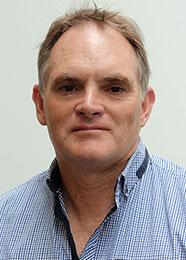
Contact Details
University Links
- Position
- Professor
- Department
- Department of Pathology and Biomedical Science (Christchurch)
- Qualifications
- MSc(Hons)(Cant), PhD(Otago)
- Research summary
- Free Radical research
Research
Oxidants (also called reactive oxygen species or free radicals) are continuously generated in our body, and we rely on sophisticated antioxidant systems to prevent them from causing damage. However, oxidants also have beneficial roles. They can act as signalling molecules that regulate a number of life and death pathways in cells, and they are generated by the immune system to fight microbes. My research is focused on how understanding how cells sense and respond to oxidants, and how these pathways might be modulated to prevent and treat human disease.Mitochondria are the small organelles inside cells that convert food into energy. These powerhouses are also a major site of oxidant production. Mitochondrial oxidants can cause damage, and they have been linked to various cardiovascular and neurodegenerative diseases as well as ageing, but they also regulate normal biological processes. We measure mitochondrial function in human cells, and study mitochondrial antioxidant defenses, including the peroxiredoxins, which act as sensors and markers of oxidative stress. We are also interested in a class of dietary compounds called isothiocyanates that can influence antioxidant networks and mitochondrial function.
All of our cells have self-destruct programs that ensure removal when they become damaged or are no longer needed in the body. Mitochondria are central players in these cell death pathways, and it appears that mitochondrial oxidants are involved in regulating cell death, but it is not clear exactly how this happens. Cancer cells are often resistant to undergoing cell death, and it has been proposed that their antioxidant defenses are more powerful. It may be possible to target these defenses, making it easier to kill cancer cells. White blood cells generate oxidants to destroy pathogenic bacteria, but these oxidants also appear to regulate the lifespan of immune cells and the resolution of inflammation. We are studying the effects of oxidants on the function of white blood cells and other cells and mediators present at an inflammatory site.
